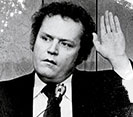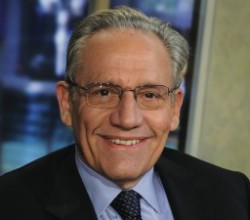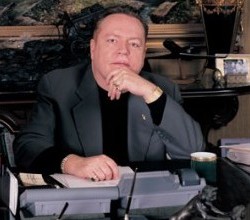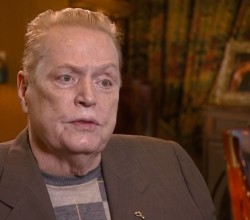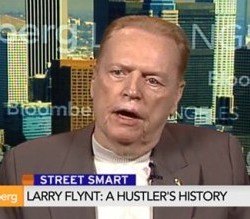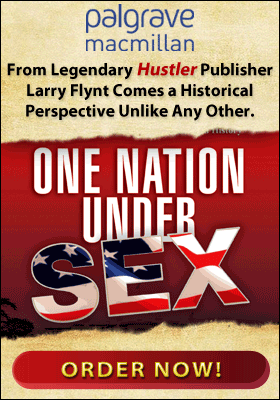The Morom Moments
LESSONS FROM THE EARLY HISTORY OF THE CHURCH OF JESUS CHRIST OF LATTER-DAY SAINTS
by Christopher Ketcham
In the beginning was the Word…of one Joseph Smith Jr., founder of the controversial religious denomination commonly known as the Mormon Church. To this day, adherents revere Smith as a prophet who formulated The Book of Mormon: Another Testament of Jesus Christ from ancient text inscribed on golden plates.
When 2012 Republican Presidential candidate Mitt Romney avows, “My faith is the faith of my fathers; I will be true to them,” the fathers he invokes are Joseph Smith and Smith’s successors.
In many authoritative biographies—namely those not written with the blessing of the Mormon establishment—Smith comes off as both a goodnatured grifter and a dangerous sociopath. According to ex-Mormon Kay Burningham—author of An American Fraud: One Lawyer’s Case Against Mormonism -the religion “was founded on deception and continues to build upon that deception.” She also asserts that Mormonism’s founders— Joseph Smith Jr. and family—“were opportunists driven to create an organization where they could acquire the social status and financial resources that they lacked.”
The story starts in 1823 when, as Joseph Smith Jr. proclaimed, an angel told him where to find sacred golden plates buried in a hill in upstate New York. However, according to Smith, it wasn’t until 1827 that he was allowed to extract the plates and begin translating what was engraved on them: a chronicle of God’s dealings with the descendants of a lost tribe of Israelites inhabiting the Americas from 2200 B.C. to 421 A.D.
Smith was mighty pleased: He had discovered God’s word, and he would bring the good news to the world. Witnesses say the religious zealot used seer stones to translate what was inscribed on the golden plates. However, skeptics suggest that Smith—a semiliterate farm boy schooled in the soaring language of the Bible—concocted The Book of Mormon out of his own fervid imagination.
This was no small achievement. Smith was a smart guy, and he had a family schooling in the art of cheating the gullible. His father, Joseph Sr., had been repeatedly charged with currency counterfeiting in Vermont in the 1820s. Joseph Jr. himself was hauled into court in the northeastern United States on multiple occasions. He was described in an 1826 New York legal proceeding as “a disorderly person and an impostor.”
According to historian Fawn Brodie, one of his preferred cons involved the help of his brother Hyrum. While visiting a neighboring household, Hyrum would secretly hide a valuable heirloom. When, days later, the victim complained that the prized object was missing, Hyrum came to the rescue. He volunteered his brother Joe Jr. to show up— for a small fee—and put “magic stones” into a hat. Joe would then put the hat over his face and stare into the stone-filled darkness to see where the lost item was—the location of which his faithful brother had already provided.
Smith said his ethical rule was, When the Lord commands, do it. This was convenient, as it was decreed by Joseph Smith that the Lord would only communicate with—you guessed it—Joseph Smith. Early on, he spoke of receiving a divine message about “plural marriage.” The Lord commanded that all Mormon men should take multiple wives and establish the tradition of polygamy. Smith’s wife at the time was skeptical.
The Mormon sect grew throughout the 1830s and 1840s, and so did the controversy. Land theft, bank fraud and cattle rustling were alleged. Historian Will Bagley describes what happened when the Mormons were forced to flee westward and resettle: “After stirring up a religious civil war in Missouri and being exiled to Illinois, Smith founded a kingdom on the Mississippi at Nauvoo, Illinois. Having secured a charter that made him ruler of a city-state and a wealthy land developer, Smith raised a private army, made himself
America’s first lieutenant general since George Washington and began seducing women and barely pubescent girls with an abandon that would make Bill Clinton blush.” Mormon converts began to look askance at sainted Joe, and today their accounts read like those of cult escapees. “When I embraced Mormonism, I conscientiously believed it to be of God,” a disaffected convert wrote in 1831. “I now know Mormonism to be a delusion.”
Mostly what the Mormon Church coveted was the property of converts and their free labor. Joseph Smith’s own personal secretary concluded that Smith and other Mormon leaders were “confirmed infidels who have not the fear of God before their eyes. They lie by revelation, swindle by revelation, cheat and defraud by revelation.”
Jailed on charges of treason, Smith—along with his brother Hyrum—ended up murdered by a lynch mob in Illinois in 1844. It’s not a surprising turn given the level of animosity that Mormons’ criminality had evoked among their preferred targets— the “filthy Gentiles” who disdained the upstart religion.
The Mormons fled still further west, looking for the Holy Land, their Zion, the paradise where they could settle without interference from the Gentiles. They discovered Zion in the sunblasted wilderness of Utah. That’s where the new prophet, Brigham Young, was presiding when 120 men, women and children traveling across Mormon territory by wagon train were slaughtered. This was the infamous Mountain Meadows Massacre of 1857, which historians believe was sparked by an apocalyptic hysteria that the federal government was planning to invade Utah and destroy Young’s people. The apocalypse never came to pass.
By the mid-1850s,W.M.F.Magraw—a personal friend of U.S. President Franklin Pierce—would conclude that civil law in Mormon territory was “overshadowed and neutralized [by an] ecclesiastical organization as despotic, dangerous and damnable as has ever been known to exist in any country…all alike are set upon by the self-constituted theocracy, whose laws, or rather whose conspiracies, are framed in dark corners.”
Years earlier, John Corrill—a onetime prominent Mormon official and a member of the Missouri legislature—authored A Brief History of the Church of Christ of Latter Day Saints. Corrill, who was excommunicated in 1839, accused the Mormon leadership of “bad management, selfishness, seeking for riches, honor and dominion, tyrannizing over the people, and striving constantly after power and property.”
Laws undermined by conspiracies and outrageous privilege coupled with unbounded greed and power-maddened mismanagement: This sounds a lot like a description of Corporate America today. Perhaps this explains why our current Mormon Moment is really about the Mormon Church’s engagement and success in the corporatocracy.
In this context, think about Mitt Romney: Here is a man who, while heading the leveraged buyout firm Bain Capital, got rich as an opportunistic “vulture capitalist” by exploiting and plundering companies built on the hard work of others. Romney indeed keeps the faith of his fathers.
———————————-
Christopher Ketcham is a New York City-based freelance reporter who has written for Vanity Fair, Mother Jones, Salon.com and many other publications and Web sites. He can be reached at CKetcham99@MindSpring.com. More of his work can be found at ChristopherKetcham.com.

